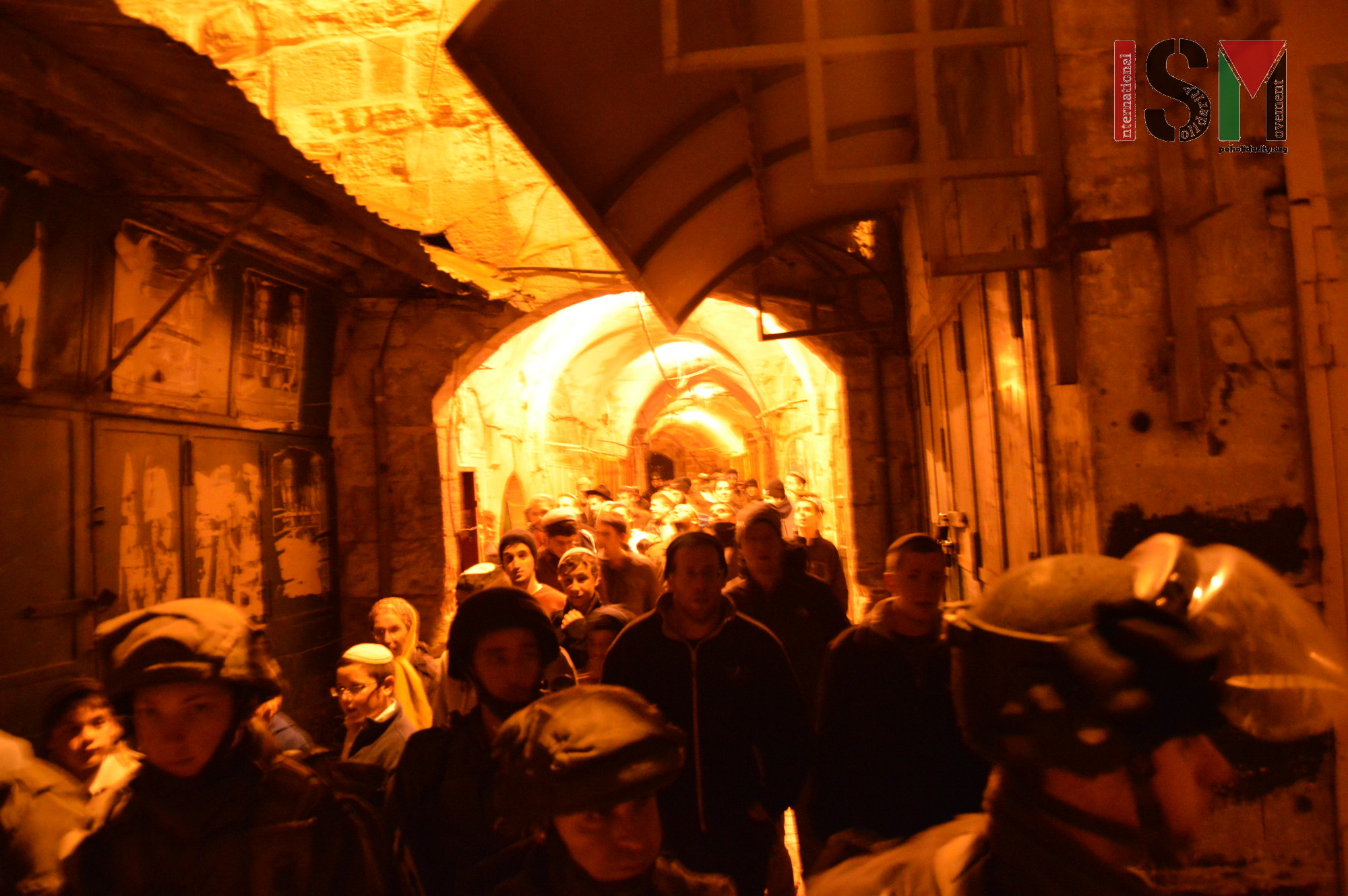Tag: Settlers
-
Ongoing colonization in Hebron: Israeli forces prepare the illegal invasion of Palestinian houses by Israeli settlers
3rd February 2016 | International Solidarity Movement, al-Khalil team | Hebron, occupied Palestine On February 3rd 2016, Israeli occupation forces violently opened the door of houses in the vicinity of the Ibrahimi mosque by cutting the door locks with a disk grinder, and then entered these houses. The houses are located in al-Sahla Street near…
-
Intimidation through nightly ‘settler-tour’
31st January 2016 | International Solidarity Movement, al-Khalil team | Hebron, occupied Palestine On Saturday, 30th January 2016, large groups of settlers, accompanied by heavily-armed soldiers, entered the Palestinian market at night and took it over for about an hour during night-time in occupied al-Khalil (Hebron). Around 9:30 pm, Israeli settlers from the illegal settlements…
-
Illegal settlers violently take over two Palestinian houses near the Ibrahimi mosque in Hebron
21st January 2016 | International Solidarity Movement, Al-Khalil team | Hebron, occupied Palestine On 21st January 2016 Israeli settlers from the illegal settlements in occupied al-Khalil (Hebron) gathered in Shuhada Street. From here the settlers went into the Old City of Al-Khalil, where they broke into two houses on al-Sahla Street near the Ibrahimi mosque…



